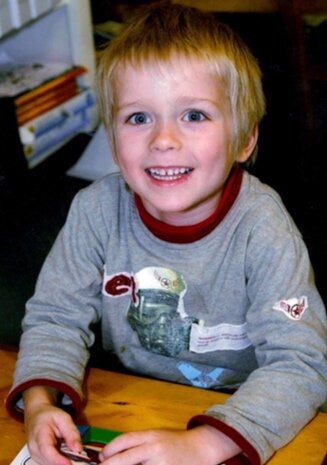Karen’s work is published in Australia and internationally.
A complete list of work is linked below
A teacher by any other name: exploring professional titles and the value they hold
In our local context we commonly use the word ‘educator’, or ‘early learning professional’ to describe the early learning workforce, and these professional titles are weaved into our regulatory and learning frameworks even though we are a disparate group with varied qualifications and experiences. While these titles might describe who we are, I wonder if they adequately describe what we do?
When Fisherman cannot go to sea they mend their nets
As the world finds itself in the most extraordinary of circumstances, preparing to ‘power down’ and self-isolate in an attempt to slow down the rates of COVID-19 infection, many in the early childhood education and care (ECEC) sector are fearful of what the coming weeks and months may bring, both for themselves as professionals, and for the children in their care.
When Fisherman cannot go to sea they mend their nets
Reggio Emilia is a place.
Given that the words ‘Reggio Emilia’ often focus our attention on an approach to early childhood education, it is worth remembering that this approach to early learning that has generated so much worldwide attention, is located within a city – and that city can explain if you look for it, the essence of the Reggio Emilia project.
Do you want me to be with your child or photograph your child?
KAREN HOPE shares her perspective on another hot topic in the early childhood sector, delving into the pressure that educators face to photograph children in their care, to document learning. Do photos of children engaged with another child or an educational activity properly demonstrate what they learn? And is it time to re-evaluate the content that is shared with families to demonstrate learning in other ways?
Do you want me to be with your child or photograph your child?
2020 - Time for a pedagogical reboot?
The early childhood care and education (ECEC) workforce often places the welfare and needs of others above their own. Unique in its position as a profession where relationship building and firing up children’s neurons is a daily key performance indicator, the ECEC sector is a high pressure, high stakes workplace – one where those tasked with the care and education of young children often do not pay due diligence to their own wellbeing.
2020 - Time for a pedagogical reboot?
What can the new normal teach us?
‘Is it possible that we can use this opportunity to create a new normal around what and how young children learn?’ KAREN HOPE explores theories in early childhood education in a time where online learning has been the only choice and shares four ‘soft’ theories that she would like to ‘test’ during these times as teachers, educators and families figure out what online learning means.
What can the new normal teach us?
How could I possibly be expected to handle school on a day like this?
‘Ferris Bueller’s Day Off’ is a classic film from 1985, about a high school kid who decides to take a day off school. It’s always been one of my favourites. At this point in time, as the world finds itself in the most extraordinary of circumstances, many of us have been called on to develop new and different ways of working and staying connected. As I have grappled with some of these particular challenges, one question Ferris asks at the beginning of the film rings through my mind – “How could I possibly be expected to handle school on a day like this?”
How could I possibly be expected to handle school on a day like this?
Photographs do not show reality. They show a version of reality.
Photographs do not show reality.
“My heart beated so fast I haven’t lectured before” Exploring child led tertiary education.
Including the voices, perceptions, feelings and perspectives of children in the learning and teaching of those emerging professionals within the early childhood education and care (ECEC) sector may seem a logical premise – after all, who better than a child to explain the viewpoint of children as a collective?
‘I haven’t lectured before. my heart beated so fast”
A face for early childhood teaching
The importance of early childhood educators being aware of the relationship between their face and the child’s recently struck KAREN HOPE. In this piece, Karen takes a closer look at this, as well as the children’s emotions and the impact these emotions might have on their learning and development.
A face for early childhood teaching
Portfolios - Pedagogical documentation or souvenir?
KAREN HOPE shares some key discussion points after facilitating a group of educators, who were delving into re-thinking ways to document learning and development for educators and children. Karen asked the group ‘what current documentation practices might they leave behind?’—This opened up ideas to what changes could be implemented to create documentation to improve ideas, strategies, interpretations, and research.
Portfolios - pedagogical documentation or souvenir?
Tech wise: what’s your plan?
How are you going to face the long summer? You may have food and drinks in the fridge or plans to visit people who do. You probably have your fire survival and evacuation plan organised. But what about your ‘children and technology’ plan? Have you activated a plan for relaxing and avoiding conflict over children’s device use this summer? Even if you have some rules in place, what about the new gadgets and apps that will slip into your home or early education setting along with the festivities and gift-giving?
Tech wise: What’s your plan?
Orange is the new surveillance
In parks, museums and other public spaces there are groups of preschool-aged children turning orange on excursions. You might have noticed these children, and their educators, as they move about in your community. They would be easy to see as they stroll about wearing hi-vis vests that people employed in hazardous industries wear as personal protective equipment. Hi-vis vests were designed to signal a person’s presence in a potentially risky space, so why are children wearing them in the park?
Orange is the new surveillance
Crabs in a bucket
What do crabs in a bucket have in common with Leadership? More than you would think writes Karen Hope in this blog—which first featured on the ECA Leadership Program recently. Leadership is a constantly evolving concept and what fits in the corporate world isn’t always how it works in early childhood educational settings.
LINKS TO ADDITIONAL PUBLICATIONS
Pedagogical documentation and early childhood assessment through sociocultural lens
What will it take?
Leadership is an action
You do not fit the child into the theory
What does it mean to be a Reggio Emilia inspired service?
Why is the Reggio Emilia project so important for early learning environments in Australia?
What’s love got to do with it?
The competent educator
Being equitable does not mean we all get the same thing
Photography - A window into learning
Is it time to rethink professional development in early childhood setting? The ‘expert’ model might not be delivering much bang for our training buck.
Why is the health and wellbeing of early childhood educators important?
In relation to students I will
The documentation pilgrimage
Hair straighteners in the home corner. Is this what Froebel intended?
Hair straighteners in the home corner - part 2
The silent Teacher
8 ways to take care of yourself
The presence of a light box does not guarantee the possibility
Children - Where are their tribes?
Ministories- A way of making visible context, strategy and assessment
The digital space as a Piazza of participation












